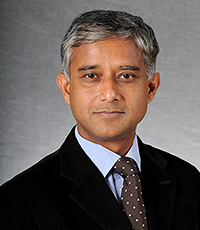Researchers at the George Washington University (GW) and the University of Georgia (UGA) will soon be able to use big data to answer questions about glycoscience. The National Institutes of Health has jointly awarded a $10 million U01 grant to GW and UGA to build a glycoscience informatic portal, called GlyGen, necessary for glycoscience to advance. GlyGen will also integrate glycan data with gene and protein data to allow for more effective analysis.
“Post-translational modifications, along with genomics, play an important role in health and disease,” said Raja Mazumder, PhD, co-principal investigator and associate professor of biochemistry and molecular medicine at the GW School of

Medicine and Health Sciences. “Using just genomics research for discovery limits scientific advancement … we may not be able to find mutations to explain the prevalence or rate of incidence of a particular disease. For that, we need to understand glycosylation, and we need the resources and tools to support this discipline.” Mazumder, with his team and the UGA team, is working closely with researchers from the United States, Asia, Europe, and Australia to build GlyGen.



